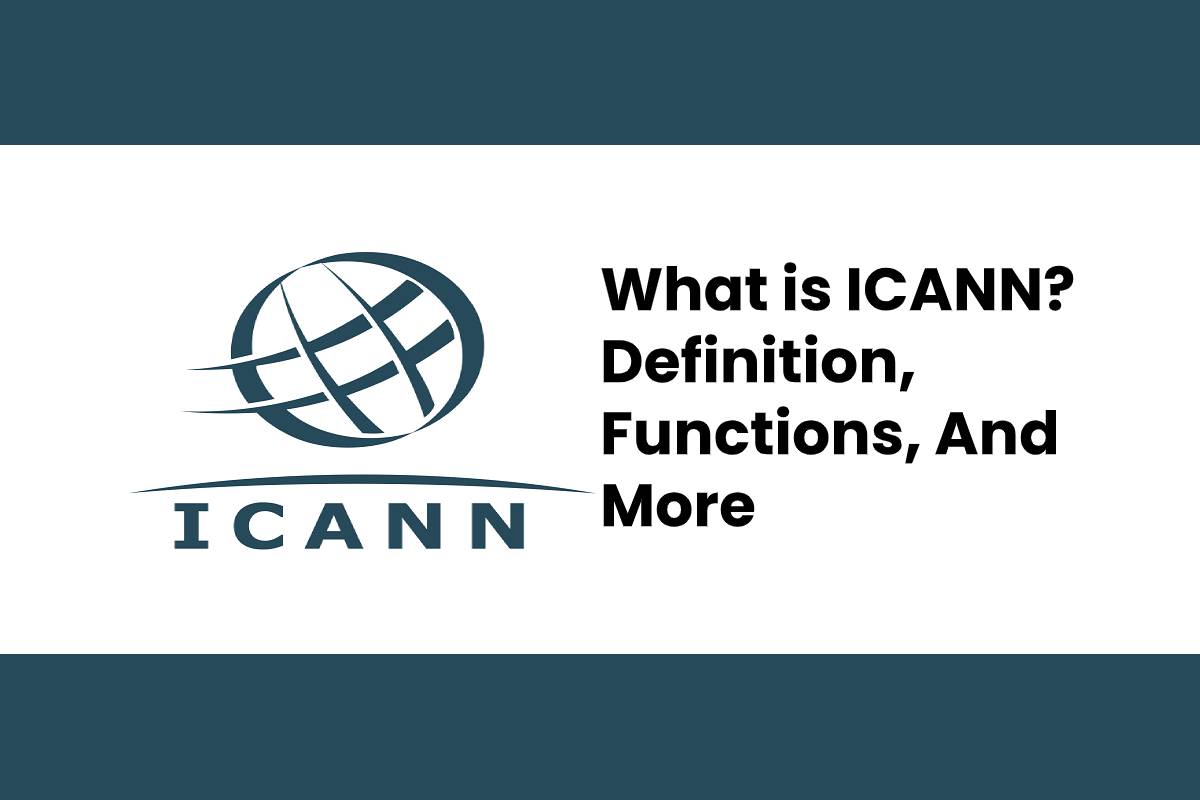

ICANN Unveiled: Definition, Functions and Tech Impact
ICANN 101 – The Invisible Hand That Keeps the Web Running
What the heck is ICANN?
- ICANN stands for the Internet Corporation for Assigned Names and Numbers.
- Think of it as the global traffic cop for domain names, IP addresses, and the protocols that let us chat, shop, and binge‑watch all at once.
- It was formed “by the people, for the people” back in 1998.
How Does It Work?
- ICANN keeps the DNS (Domain Name System) clean by coordinating who owns what.
- It licenses registries, the companies that own the top‑level domains (like .com, .org, .uk).
- Registries then license registrars, the retail guys that sell you a domain name like a springy rubber band.
- A domain name is minted, sold, and then pointed to the right IP address – the web’s “address book.”
Why does it matter to us?
- Without ICANN, the internet would be a chaos of duplicate names and wandering packets.
- Think of it as a global post office that guarantees, “Hey, your domain’s spelled correctly—no one else has already claimed it.”
- It helps keep the internet secure (think of built‑in checks against typos and spoofing).
Registry vs. Registrar – The Dynamic Duo
Registries – The Keepers of the Top‑Level Domains
- They own the entire namespace for a TLD (e.g., .com is owned by VeriSign).
- Handle policy, stability, and the money flow from all domains below them.
- Think of them as the homeowners of a huge, well‑managed block of houses.
Registrars – The Front‑Line Sales Team
- Act as the entry point for individuals and businesses wanting a domain.
- Offer brandable names, price comparisons, and add‑on services like privacy protection.
- Essentially the “domain name supermarket” that keeps the market moving.
How They Collaborate
- Registries hand over market rules and data to registrars.
- Registrars run the sales funnel and forward the domain details back up the chain.
- In the end, the domain gets a home and goes to your webpage.
Wrap‑It‑Up – Why ICANN Is the Internet’s Champion
- Managed by a community‑driven approach to keep things fair.
- You don’t need to know the intricacies; just know your domain works because this system is in place.
- ICANN keeps the puzzle pieces connecting, so we can keep exploring the web without misdirection.
Definition ICANN
Meet ICANN: Your Internet’s Quiet Guardian
Think of ICANN as that super‑responsible neighbor who quietly keeps the digital neighborhood running smooth as butter. Officially called the Internet Corporation for Assigned Names and Numbers, this U.S.‑based, multi‑stakeholder, non‑profit crew is the backstage crew behind the scenes of the web.
What Do They Do?
- Domain Naming – They make sure every website gets a spot on the map (those quirky
.com,.org, and even.infolabels). - DNS Management – They keep the DNS (the internet’s phone book) humming, so your searches always hit the right address.
- Security & Stability – From fighting phishing attempts to ensuring the internet’s backbone stays rock‑solid, ICANN is the guardian that keeps everything safe.
Why This Matters
Without ICANN, the internet would be a chaotic bazaar where any link could lead off into nowhere or, worse, a phishing trap. Their coordinated approach keeps the digital world tidy, secure, and always ready for your next click.
In short: ICANN keeps the internet’s namespaces neat, the digital spaces secure, and the whole experience smooth for all of us.
How does ICANN work?
Who’s Behind the Web’s Address Book? Meet ICANN
Picture the Internet as a giant phone book—only instead of dialing people, we type demosite.com into our browsers. Who keeps that phone book updated? Meet ICANN, the nonprofit giant that has been calling the shots on domain names since 1998.
So What Does ICANN Even Do?
- Domain Name System (DNS) Coordination: Think of it as a traffic cop for the Web’s traffic lights.
- Regulating Names: It decides which top‑level domains (TLDs) get to exist—like .com, .org, .io, and the quirky new ones.
- Transparency & Accountability: ICANN publishes its policies online. But, trust me, most people still don’t know how their favorite website got its name.
Why It’s Not a Government Agency
ICANN is a non‑profit, meaning it’s not run by a government but by a community alliance of registries, registrars, and other stakeholders. Its own set of laws and regulations guides everything it does.
How the Big Picture is Broken Down
Managing the DNS is a colossal job—so the responsibility gets split into two layers:
- Registries: The “official” owners of each TLD (like the folks who own .net or .co.uk). They set the policies for how .net domains should be handled.
- Registrars: The storefronts where you actually buy a name. Think of them as the online shops that let you pick and register your .mycoolblog.net.
ICANN keeps the system running smoothly by setting the overall rules that both registries and registrars must follow.
Bottom Line
So next time you discover http://example.org or https://sunset-features.co, remember that behind those URLs is a carefully orchestrated network managed by ICANN and its network of registry and registrar partners. It’s like the unsung hero of the internet—keeping every domain in line so you can surf without a hitch.
Registry
Who’s Running the Show? A Quick Peek at Domain Gatekeepers
Think of the internet as a giant library, and every website address is a unique book. The folks who decide who gets to publish those books are the ICANN delegates. They hand over the reins for each domain extension—those little bits at the end of a web address like .com or .es—to trusted partners. These partners get all the juicy details and pay a yearly fee to keep their seat at the table.
Top‑Tier Captaincy
- VeriSign – The big shots behind the
.comrealm, which you’ll probably see stamped on most business sites. - red.es – A public‑sector outfit under Spain’s Ministry of Industry, Energy and Tourism, steering the
.esdomain.
Diffusing the power across different players keeps the internet’s domain system flexible, secure, and ready for whatever trend hits next. Whether you’re a tech guru or a casual browser, it’s always neat to know who’s behind the scenes keeping your favorite URLs up and running.
Registrars
Who’s Really Selling Your Domain? A Quick Tour of Registrars
Registrars are the folks who spin the domain‑magnet and try to snag buyers for your new address. Think of them as the hype artists of the internet, always shouting louder about the next cool name while putting their prices at the bottom of the leaderboard.
Price Wars & Hidden Costs
- All the big players shout “lowest price” but behind that sweet banner, many sneak in essential services—like payment processing or DNS zones—onto the bill. These add‑ons cost a pretty penny, even if you’re promised a free redirect.
- It’s easy to walk into a “cheap” deal and end up paying for more than you bargained for.
Unofficial But Still Useful
Not every company that offers the same goodies is officially backed by ICANN. Some operate in the shadows but can still give you the same level of service. Just make sure you’re aware of their credentials before you sign up.
New Extensions = More Competition
- With fresh extensions popping up every month, both registries and registrars are scrambling to stay ahead.
- These new domains come with special rules—for instance, the .app extension is only meant for apps. And yes, they’re actually enforcing that rule.
Bottom line: pick your registrar wisely, check for hidden fees, and keep an eye on the rules that come with those brand‑new domain names.







